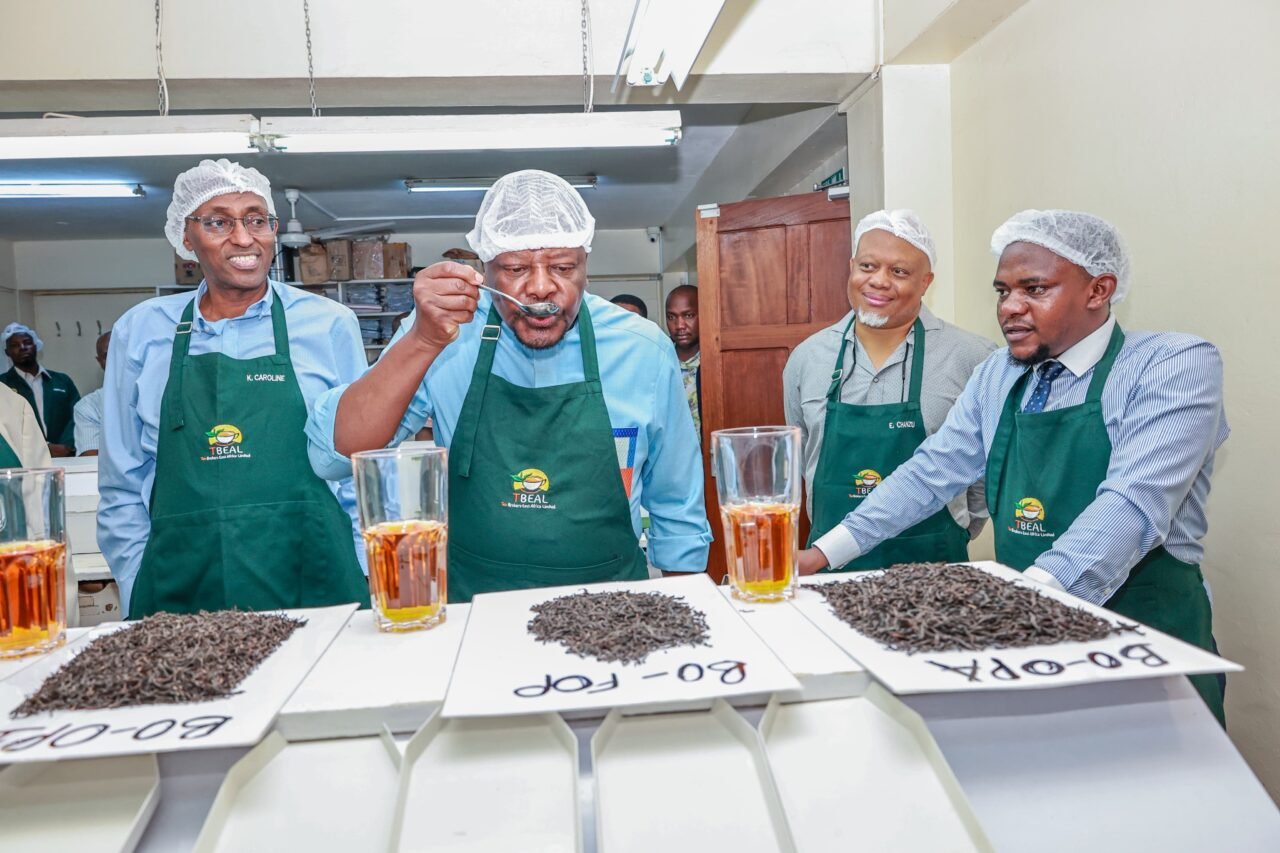Kenya holds its first-ever orthodox tea auction in a bid to Boost Farmers’ incomes
By Sandra Neddy
Kenyan tea farmers are poised to benefit from higher earnings and expanded market opportunities following the government’s launch of the Orthodox Tea Trading Window at the Mombasa Tea Auction.
Unveiled by the Agriculture Cabinet Secretary Mutahi Kagwe, the initiative aims at diversifying Kenya’s tea exports as a result of the fluctuating global prices of traditional black CTC (crush, tear, curl) teas.
The first 2,925 packages which are equivalent to 91,798 kilos of Orthodox tea were traded at the auction marking a new era for the country’s specialty teas.
“Kenya has an excellent profile for being a lead producer of CTC teas but it is high time we diversified our markets by increasing our capacity to produce orthodox teas in order to capture the ever-changing global market and raise demand for specialty teas which will enable our farmers to tap into the premium market,” said CS Kagwe.
“This diversification will mean more money in their pockets, greater resilience and new revenue streams as consumers,” he added.
Orthodox tea refers to loose-leaf tea that is produced using the traditional(orthodox) method, which involves plucking, withering, rolling, oxidizing, and drying. This results in whole, unbroken leaves that are highly valued for their complex aromas, rich flavors, and suitability for specialty varieties such as black, green, and oolong teas.
According to the Kenya Tea Development Agency (KTDA), orthodox tea fetched between USD 3.40 and USD 4.16 per Kg, with an average of USD 3.70 per Kg in 2024. This is in contrast to the current average of just USD 2.28 per Kg for bulk CTC teas at the Mombasa auction.
Last year’s total production of orthodox tea was 7.51Million Kilograms, and out of this, 5 million Kilograms were exported. However, this was a drop from the total production in 2023, which was 12.34 million kilos. This reduction is largely attributed to challenges in the Iranian market.
However, the CS noted that the Ministry is holding talks with the Iranian government to restore tea trade ties between the two nations.
In a bid to scale up the production capacity of orthodox tea, the Tea Board of Kenya (TBK) has licensed 22 orthodox manufacturers and aims to double this to 42 by 2027. “Our target is ambitious but achievable. We aim to grow installed Orthodox capacity from 15 million kilos in 2024 to 200 million kilos by 2030,” said CS Kagwe.
TBK has also established a Tea Quality Assurance Laboratory in Mombasa to offer real-time quality advisory, product testing, and food-safety certification. Additionally, the Mombasa auction will be going online in order to increase transparency, improve farmer returns, and ensure Kenya remains globally competitive.
“This digital transformation will allow buyers from across the world to participate in real-time, enhance price discovery, reduce cartels, and position Kenya as a modern, efficient tea trading hub,” read a statement from the office of the Cabinet Secretary for Agriculture’s Twitter (X) page.
With these reforms, tea farmers are expected to get higher incomes, wider market reach, stronger resilience against market shocks, and global recognition for Kenyan specialty teas.



